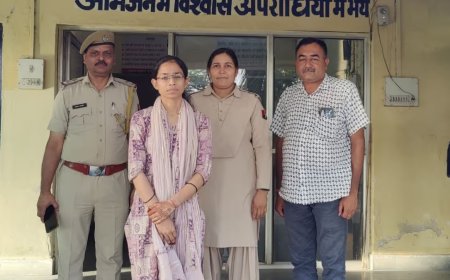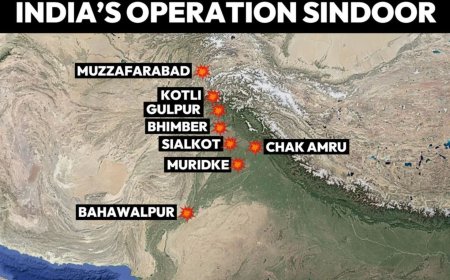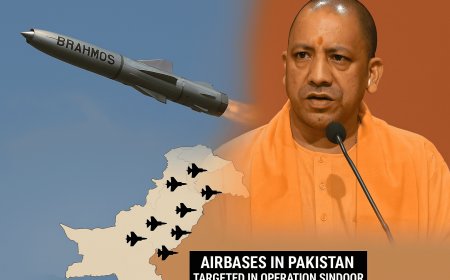Terror Strikes Pahalgam – India’s Explosive Response Revealed!
Terror strikes Pahalgam, sparking India's explosive response! Discover breaking updates, government actions, and the unfolding impact on national security.

Terror struck the peaceful valleys of Kashmir once again. This time, it was the scenic town of Pahalgam, a popular tourist destination known for its lush greenery and river views. A terrorist attack shook the region when armed militants opened fire on a group of tourists, injuring many and leaving families devastated. The incident was not just a cowardly act of violence—it was a direct assault on innocent lives and the spirit of India.
India’s Strong Answer to the Pahalgam Terror Tragedy
Imagine planning a peaceful holiday with your loved ones, only for it to turn into a nightmare. That’s what happened to several families who had come to Pahalgam just to enjoy nature. The sudden gunfire, chaos, and fear changed their lives in seconds. Parents were separated from children, and friends lost friends. The grief was unbearable, and so was the anger. The entire nation stood with the victims, demanding justice and action.
In the days that followed, it was clear that this wasn't just another attack—it was a wake-up call. And the Indian government wasted no time in responding.
What Did the Government Do After the Pahalgam Terror Attack?
The central government, under the leadership of Prime Minister Narendra Modi, took swift and serious actions. Here's a list of key decisions and moves that were made to ensure national security and send a strong message to those who support terrorism:
1. Increased Military Presence in Jammu & Kashmir
Soon after the attack, the government deployed additional troops in sensitive areas of Jammu and Kashmir, including Pahalgam. The aim was not just to prevent further attacks but also to track down the terrorists responsible.
2. High-Level Security Review Meetings
PM Modi chaired emergency meetings with top defense and intelligence officials. These meetings led to a complete review of the current security arrangements in the region, and steps were taken to plug any gaps that could have allowed such an attack.
3. Crackdown on Lashkar-e-Taiba Operatives
Security agencies were given full freedom to track and neutralize members of Lashkar-e-Taiba, the terror group suspected to be behind the attack. Several hideouts were raided, and arrests were made across the Valley. Intelligence sharing was also improved between various agencies.
4. Diplomatic Offensive Against Pakistan
India once again raised the issue of Pakistan's role in sponsoring terrorism at international forums. The government presented evidence linking the attackers to groups based in Pakistan, further isolating it on the world stage.
5. Review of the Indus Waters Treaty
In a bold move, the government announced a review of the Indus Waters Treaty, a decades-old agreement between India and Pakistan on sharing river waters. While India has always respected the treaty, there has been growing sentiment that such generosity should not be extended to a country that harbors terrorists. The review served as both a practical and symbolic step to show that India would no longer tolerate such acts.
Pakistan’s Response on the Indus Waters Treaty
As expected, Pakistan reacted sharply to the idea of reviewing the Indus Waters Treaty. Their officials called it a violation of international law and claimed that India was using water as a weapon. However, many experts believe that India is well within its rights to reconsider how much water it lets flow to Pakistan, especially when cross-border terrorism continues unchecked.
Interestingly, Pakistan’s statements focused more on the treaty than on condemning the Pahalgam terror attack itself—something that didn’t go unnoticed by the Indian public and global observers. It raised an important question: Why is Pakistan more worried about water than human lives?
Final Thoughts
The Pahalgam terror attack was a tragedy that brought pain to many and stirred emotions across the country. But it also brought about decisive actions from the Indian government. Whether it was beefing up security, going after terror groups like Lashkar-e-Taiba, or taking a tough stand on Pakistan and the Indus Waters Treaty, the message was clear: India will not stay silent anymore.
This incident reminds us that while we may be peaceful, we are not weak. And the strength of a nation lies in how it protects its people and responds to injustice.
What's Your Reaction?
 Like
0
Like
0
 Dislike
0
Dislike
0
 Love
0
Love
0
 Funny
0
Funny
0
 Angry
0
Angry
0
 Sad
0
Sad
0
 Wow
0
Wow
0
































































































